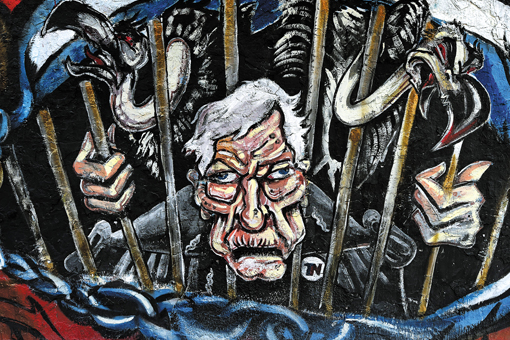The reverberations of Argentina’s loss in NML Capital Ltd. vs. Republic of Argentina continue.
The conflict stems from a 2012 decision by United States District Court for the Southern District of New York (SDNY) Judge Thomas Griesa in a case brought by the hedge fund NML Capital Ltd. and others (NML), over $1.3 billion of bonds they hold, issued by Argentina under a 1994 Fiscal Agency Agreement and governed under New York law, that Argentina defaulted on in 2001. Argentina conducted exchange offers in 2005 and 2010 that canceled approximately 93 percent of bonds governed by various foreign laws as well as Argentine-law governed U.S. dollar bonds. Subsequently, Argentina settled with some of its official sector creditors as well.
NML, which did not participate in these exchanges and still holds defaulted Argentine bonds, came up with a novel legal theory to try to collect from Argentina. Instead of just asking the judge to grant a money judgment (something NML already had done for other bonds it owns), it asked the judge to give it equal treatment on the grounds that when Argentina made payments to bondholders who had accepted the exchange, it was violating the pari passu clause (in other words, that all creditors get equal footing) of the 1994 Fiscal Agency Agreement. Judge Griesa agreed, and on February 23, 2012, Judge Griesa issued his equal treatment order, whereby Argentina, whenever it wanted to make a payment on the new bonds that the Argentina government had issued in the 2005 and 2010 exchange offers, would also have to make a “ratable payment” to NML and co-plaintiffs.
The “ratable” piece requires Argentina, when making full payment to the exchange bondholders of any amounts owed, to make full payment to NML, which in this case means 100 percent of NML’s claim.
What makes the equal treatment order so powerful is that not only does it prohibit Argentina from making the payments, but the order also prohibits any entity acting in concert with Argentina from aiding Argentina in making payments.
Judge Griesa’s order specifically mentioned Bank of New York Mellon (BNYM) as a trustee and paying agent under the new bonds, as well as The Depository Trust Company (DTC), and Euroclear and Clearstream, Luxembourg. The bonds that Judge Griesa made subject to the equal payment order were all issued under the exchange offers conducted in 2005 and 2010. Those exchange offers included three types of bonds plus new bonds tied to Argentina’s economic growth (GDP warrants)…





